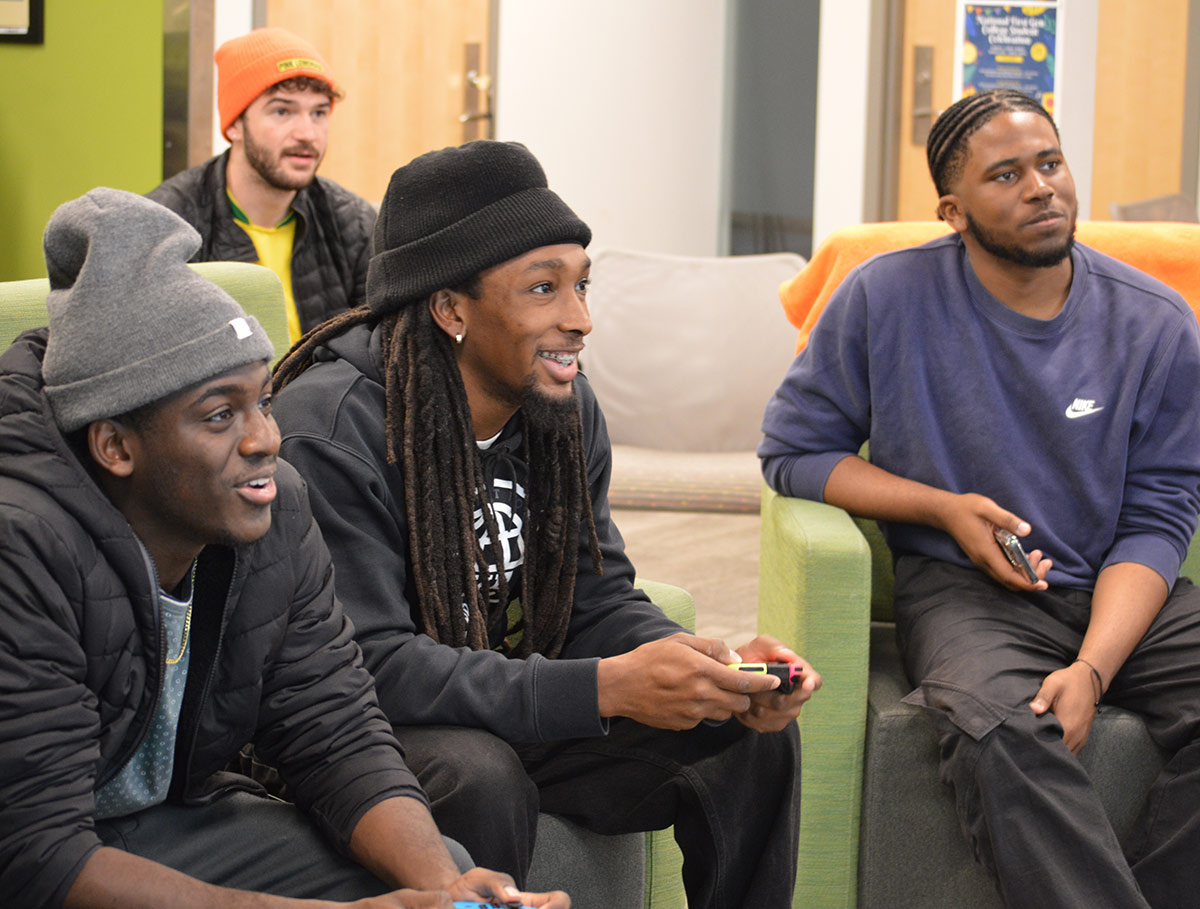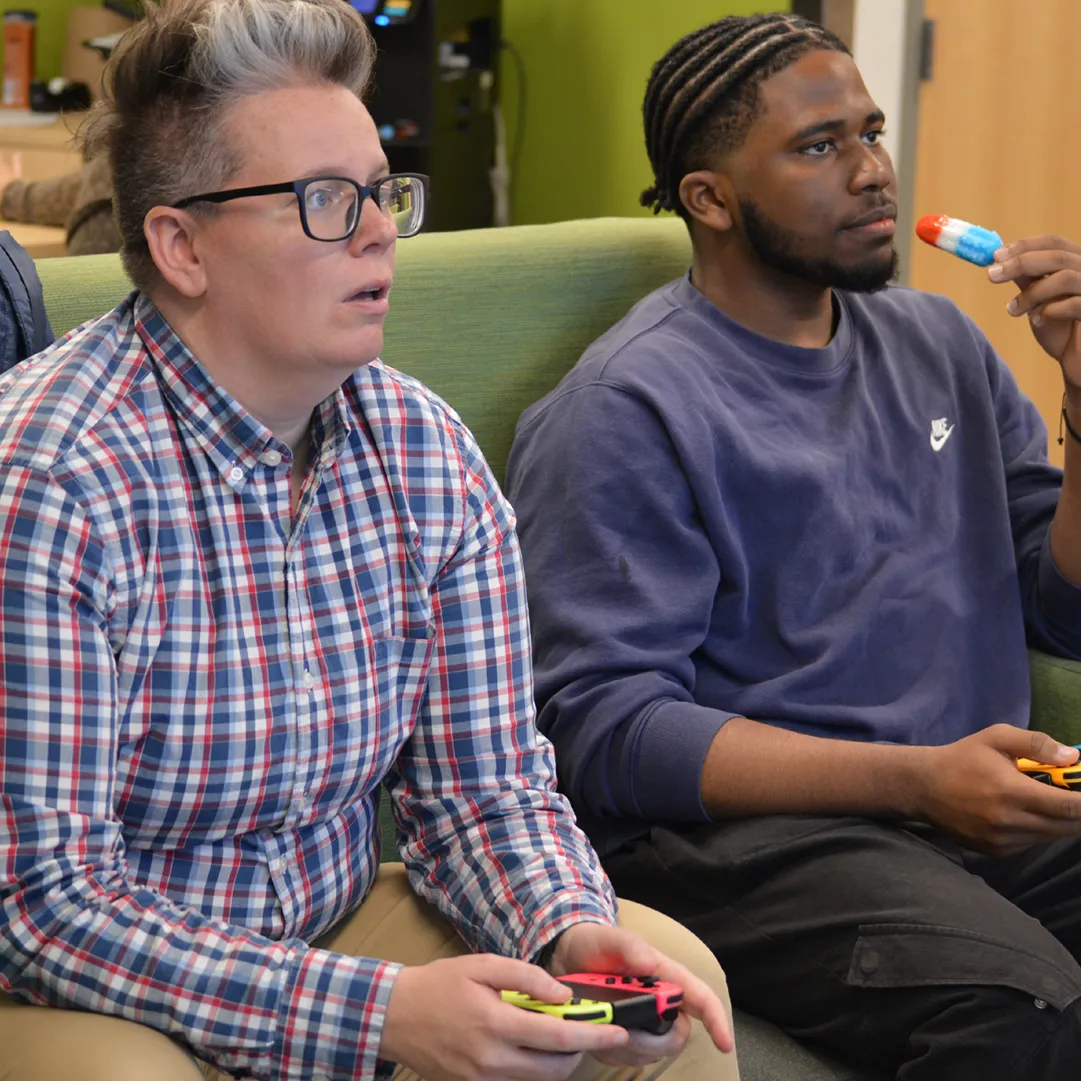Supporting First-Generation Learners at SNHU
Many first-generation learners don’t know what to expect when coming to college. Joie Gibson ’15 ’18G – an SNHU alumna, staff member, and faculty member – recalls her experience as a student: “I couldn’t ask my parents to help me with my homework because my dad dropped out of school in seventh grade.” As Helena Iaquinta – user experience researcher, DEI, and one of the First-Gen Workgroup representatives – states, “There often feels like there is a rule book for college that not all students receive. So the more we can illuminate confusing acronyms, terms that don’t make sense, and be explicit about how to get help with assignments, that is really important to make sure first-generation students do not fall behind.”
First Scholars Network
“As SNHU continues its commitment to access and social mobility, earning the First Scholars Network designation is a testament of our dedication to providing the support and resources that are so vital to the success of our first-generation learners,” said Dr. James Winfield, SNHU’s associate dean of first-year experience, general education, and retention strategies.

During the first year of membership in the First Scholars Network, member schools commit to building an understanding of first-generation student success by participating in a series of workshops, networking, and professional development opportunities, as well as participation in a peer community.
“Being named as a First Scholars Network member is an exciting opportunity for these institutions to join a dedicated community of professionals prepared to share evidence-based practices and resources, troubleshoot challenges, generate knowledge, and continue to advance the success of first-generation students across the country,” Dr. Kevin Kruger, president and CEO of NASPA, said in a release.
The designation as a First Scholars Network member is the first of four phases culminating in achieving the status of First Student Champion Campus.
Building a Community of First-Generation Learners
“I hope this continues growing,” said Dr. Lynn Zlotkowski, senior director of campus student retention and success. “It’s important for SNHU to host events for first-gen students because we have a high percentage of first-gen students on our campus, and they need to see how proud we are of them. We want them to make connections with other first-gen students and with the faculty and staff who are here to cheer them on and support them.”

In the online space, the First-Generation Learning Resource Group hosted a virtual panel featuring SNHU employees who were the first in their families to graduate from college: Academic Advisor Joie Gibson ’15 ’18G, Career Services Advisor David Munn, and Academic Advising Team Lead Hannah Hodes.
The panelists shared their journeys as first-generation college students – how they overcame challenges, what they learned along the way, and what they are doing now with their degrees. There were more than 130 students, faculty, and staff in attendance.
Panelist Hannah Hodes agreed and said that faculty and staff can play a critical role in supporting first-gen learners. “It’s essential for faculty and staff to continue (or start) getting involved and support first-generation students because they need the support. First-gen students are often left to navigate the maze of higher education on their own, and they simply don’t know what they don’t know. If we have a way of making these students more visible to student-facing departments, and we couple that with providing proper resources for supporting first-gen students, then we can provide real, proactive, in-time support without having to wait for the student to ask.”
Hodes said she encourages students to connect with their advisors and get involved. “Students can join the First-Generation Learning Resource Group on SNHUconnect, our virtual student union, and mention their first-gen status in their discussion posts each term. Branch out and make connections. We mean it when we say there is an army of people supporting them and cheering them on!